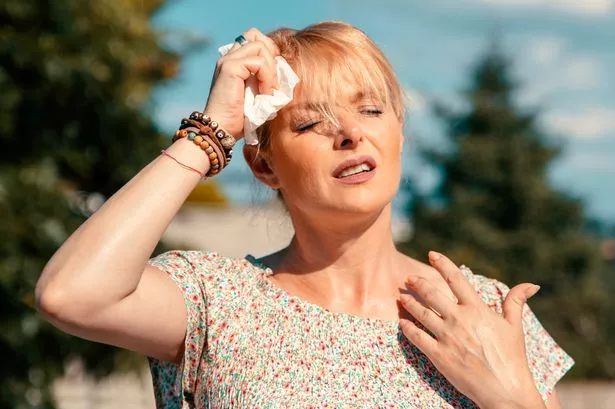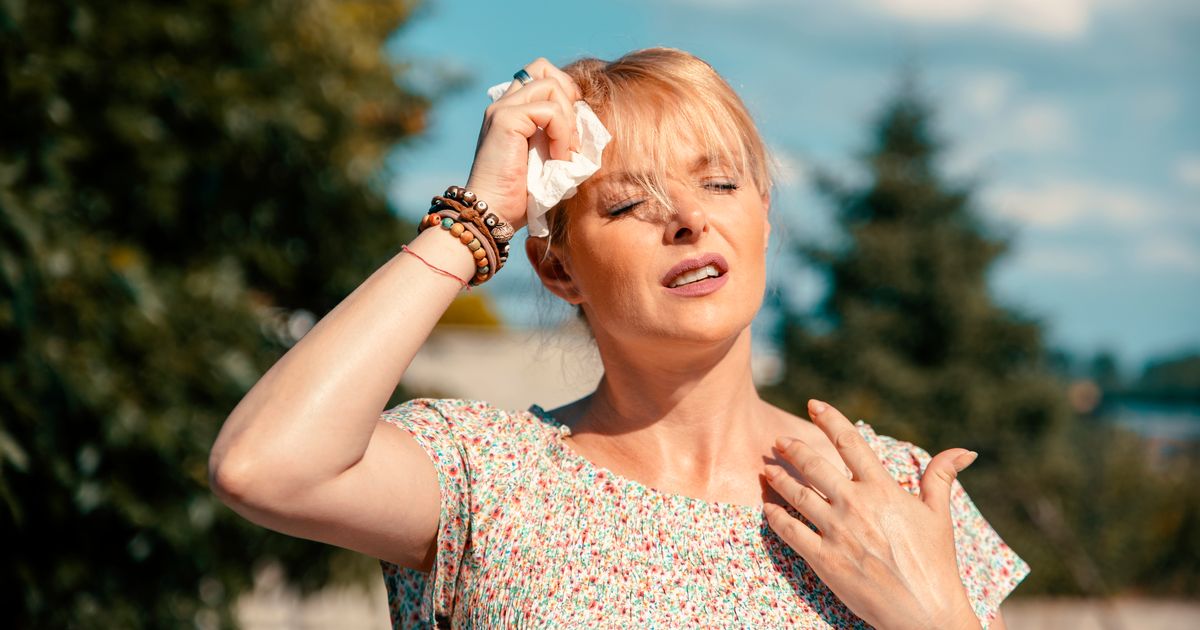Four areas of England are set to be worst hit by high temperatures amid a yellow heat warning The NHS has urged people to call 999 if this symptom does not get better in 30 minutes(Image: Getty)
The NHS has urged people to call 999 if this symptom does not get better in 30 minutes(Image: Getty)
The NHS has issued a critical alert, advising the public to “call 999 now” if certain symptoms persist beyond 30 minutes. The warning comes as Britain faces a health risk due to soaring temperatures.
The national health service cautions that in cases where someone shows signs of heatstroke “after 30 minutes of resting in a cool place, being cooled and drinking fluids”, emergency services should be contacted immediately. Heatstroke is particularly likely during bouts of extreme heat and poses a greater threat to children, the elderly, and those with chronic health conditions.
The NHS website states: “Heat exhaustion does not usually need emergency medical help if you can cool down within 30 minutes. If it turns into heatstroke, it needs to be treated as an emergency.”
It adds: “Call 999 now if you or someone else have signs of heatstroke, including still [being] unwell after 30 minutes of resting in a cool place, being cooled and drinking fluids.” This week the UK Health Security Agency (UKHSA) issued a yellow heat alert for parts of England, highlighting potential dangers. This alert coincides with the Met Office forecasting temperatures reaching up to 30C.
Regions expected to be most impacted are the east of England, east Midlands, London, and the southeast. The UKHSA’s website says: “Whilst temperatures may not seem too high for the general population for now, data from UKHSA shows that even at these forecasted temperatures, vulnerable groups and health care services can be impacted.”
Under the joint alerting system of UKHSA and the Met Office’s Weather-Health, a yellow alert signifies potential impacts such as:
- Increased demand on health care services by vulnerable groups
- Heightened risk to health for individuals aged over 65 years or those with pre-existing health conditions, including respiratory and cardiovascular diseases
Dr Agostinho Sousa, head of extreme events and health protection at UKHSA, explained: “Our findings show that even moderate heat can result in serious health outcomes, especially for older adults, and it is therefore important that everyone takes sensible precautions while enjoying the sun. The forecasted high temperatures are expected to be short-lived but could primarily impact those over the age of 65 or those with pre-existing health conditions.
“If you have friends, family or neighbours who are more vulnerable, it is important to check in on them and ensure they are aware of the forecasts and are following the necessary advice.’
Symptoms of heatstroke
The NHS states that heat exhaustion does not usually need emergency medical help if you can cool down within 30 minutes. But if it turns into heatstroke, it needs to be treated as an emergency.
The signs of heat exhaustion include:
- Tiredness
- Dizziness
- Headache
- Feeling sick or being sick
- Excessive sweating and skin becoming pale and clammy or getting a heat rash, but a change in skin colour can be harder to see on brown and black skin
- Cramps in the arms, legs and stomach
- Fast breathing or heartbeat
- A high temperature
- Being very thirsty
- Weakness.
You should call 999 if you or someone else has signs of heatstroke, including:
- Still being unwell after 30 minutes of resting in a cool place, being cooled and drinking fluids
- A very high temperature
- Hot skin that’s not sweating and might look red (this can be harder to see on brown and black skin)
- A fast heartbeat
- Fast breathing or shortness of breath
- Confusion and lack of coordination
- A seizure or fit
- Loss of consciousness.
The yellow heat-health alert is in place until Sunday. If someone has heat exhaustion, you should:
- Move them to a cool place
- Remove all unnecessary clothing like a jacket or socks
- Get them to drink a sports or rehydration drink, or cool water
- Cool their skin – spray or sponge them with cool water and fan them. Cold packs, wrapped in a cloth and put under the armpits or on the neck are good too.
How to stay safe
To stay safe during this hot weather event, the UKHSA advised people to keep out of the sun at the “hottest time of the day”, which is between 11am and 3pm. It also recommended:
- Keeping your home cool by closing windows and curtains in rooms that face the sun
- If you do go outside, cover up with suitable clothing, such as an appropriate hat and sunglasses, and seek shade and apply sunscreen regularly
- If you are going to do a physical activity (for example, exercising or walking the dog), plan to do these during times of the day when it is cooler, such as the morning or evening
- Knowing the symptoms of heat exhaustion and heatstroke and what to do if you or someone else has them.
